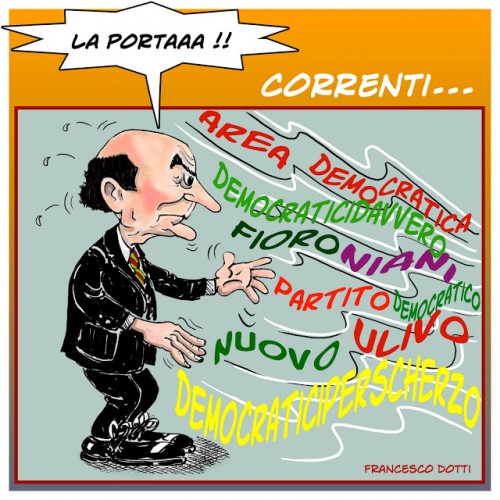In no other part of the world is the air as dangerous as it is in Italy. Not because of pollution, although cities like Florence have some of the most polluted air in Europe, but because of the air itself — throughout the country — inside and outside. In fact, it seems to be more risky inside than out. And air conditioned air is the worst of all.

Tell an Italian that you have any of the following symptoms: headache, sore throat, indigestion, chest pain, toothache, earache, stiff neck; and the diagnosis will be the same — you have been attacked by air. Specifically you have experienced a blast of air or colpo d’aria. The incident of exposure could have lasted for seconds or hours, but must have occurred within the last week to cause your present malady.
The result of the dreaded draft will be a cervicale (sore cervical spine), torcicollo (stiff neck), mal di testa (headache), raffreddore (head cold), or congestione (stomach cramp). These relatively mild ailments could lead to pneumonia indigestion or death.

Not being Italian, the tourist is not in danger of contracting any of these ailments from the colpo d’aria. The tourist, instead, will be merely hot because the air conditioning will be off in the car, the train, or the restaurant, or suffocating because the windows cannot be open at night, or in a car, or in a train. Alone in a restaurant, trying to cool down on a sweltering hot August day, it is guaranteed that a group of Italians will arrive and within five minutes ask the waiter to turn off the AC “for their health.” Refrigerated air is considered more peril-filled than fresh air, but night air can claim the unwary sleeper.

Sweaty bodies are especially at risk, as are children emerging from the ocean onto a blistering hot beach. An Italian mother will always have a sweater, scarf, and socks (cotton in summer, wool in winter) in her humongous purse in case her treasured only child is threatened by air. Any part of the body (knees, liver, hips, gall bladder, heart and lungs), but especially the head and neck, is subject to the dangerous air
Only tourists will risk drying their hair au naturel, either inside or on the street (also a violation of the hair styling rules). Only tourists expose their tummies and shoulders to the errant breeze.

The benefit, of course, is that Italy produces the most beautiful scarves, sweaters, wraps, shawls, and other apparel in silks, cottons, cashmere and wool to protect the delicate neck and shoulders from the dreaded draft.
But it doesn’t end here. Ask your Italian friends about the saying: Sole di vetro e vento di fessura mandano l’uomo in sepoltura. It seems that sun through window glass and the dreaded draft will send a man to his grave. Beware!
